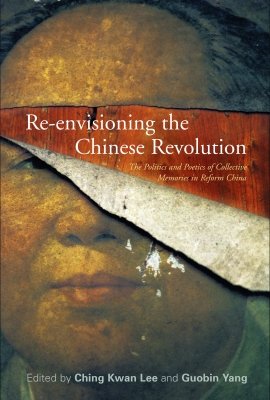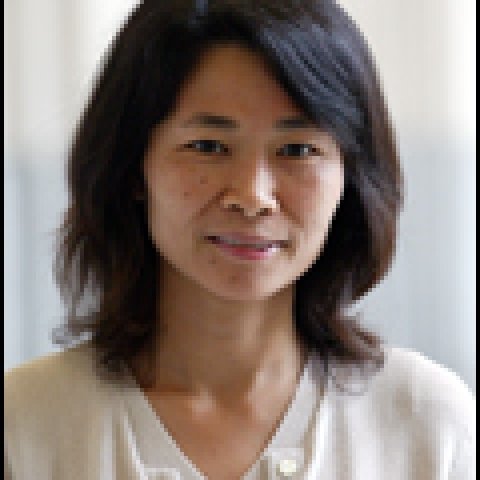Ching Kwan Lee
Fellow
Professional Affiliation
Associate Professor of Sociology, University of Michigan
Expert Bio
My interest in the Chinese working-class has its origin in several sources. Born and educated in Hong Kong, a capitalist enclave under British colonial rule, I had always found the Chinese Mainland an enigma that was awe-inspiring but also deeply disturbing. My childhood image of the Mainland was one of grinding poverty and backwardness, summed up in the numerous parcels of edible oil and used clothes that my late grandmother sent to relatives in her home village in Guangdong. As a college student in the eighties, I learned to appreciate the challenge of the Chinese revolution and socialism as an alternative route to modernity. Just as I embarked on my graduate studies and was intrigued by the study of comparative communism, China has already moved on to a "second revolution," termed "market socialism." Her dramatic surge as the world's workshop in the 1990s naturally became the first subject matter of my sociological inquiry.I was fortunate to have had the opportunity to attend graduate studies at Berkeley where some of the most imaginative and engaging Marxist and feminist scholars enlightened me with a vision of critical social inquiry. My first book, which grew out of my dissertation, examines mechanisms of labor control over women workers in the south China global manufacturing region, a borderland between socialism and capitalism. It was a project very much rooted in the Marxist labor process tradition, but which also attempted to enrich the latter by confronting it with new conditions. I wanted to know what happened when women workers have become core to the industrial working class in a political economy not easily subsumable under a single logic of either global capitalism or state socialism. Through a comparative ethnography of two factory regimes, I show how gender constitutes the labor markets, the shop floors and "workers" differently in these two contexts. Class and state structures are important but not sufficient factors to explain the dynamics of factory regimes, and gender must be incorporated in theorizing labor control. For my current book project, I look at another aspect of Chinese labor politics, that of insurgency and resistance to power, rather than the institutionalization and reproduction of control over workers. This shift in interest reflects changing realities. Throughout the reform period, the working class has evolved from a bastion of regime support to a wellspring of discontent and social unrest. At the same time, the Chinese state has made a serious attempt to reinvent its legitimacy through constructing a law-governed state, using the law to regulate labor relations. The book manuscript that I plan to complete at the Wilson Center is a comparison between two major segments of Chinese labor whose lives are most affected by market reform and who have registered the most radical responses in the form of protests, strikes, and legal activism. They are veteran state sector workers in the northeastern industrial rustbelt and the new generation of young migrant workers in the global export base in the south. I seek to answer two questions: To what extent has the state-society (labor) relation been transformed by the fledgling "rule by law"? Are Chinese workers becoming a politically assertive "class" or rights conscious "citizenry"?
Education
B.A. (1987) First Class Honors, Sociology, Chinese University of Hong Kong; M.A. (1988) and Ph.D. (1994), Sociology, University of California at Berkeley
Subjects
China
Experience
- Associate Professor of Sociology, University of Michigan, 2003-present
- Assistant Professor of Sociology, University of Michigan, 2000-03
- Visiting Scholar, Harvard-Yenching Institute, Harvard University, 1999-2000
- Assistant Professor of Sociology, Chinese University of Hong Kong, 1994-99
Expertise
Chinese society; labor; gender; socialist and post-socialist transformation; ethnography
Wilson Center Project
"Legitimacy, Law and Labor: Remaking the State and Industrial Labor in China"
Project Summary
My project examines the intertwined processes of constructing a law-governed state and the remaking of the working class during China's transition to a market economy. I address two questions: Can the Chinese state reinvent its legitimacy and create new relations with society through a "rule by law"? Are the teeming millions of young migrant workers and the massive unemployed population becoming a politically assertive "class" or rights conscious "citizenry"? My empirical research is carried out in two regions, the rustbelt in Liaoning and the global export base in Guangdong, focusing on how workers organize and use the Labor Law and related regulations to make claims to the state and employers. I compare the uneven results of market reform and the diverse modes of labor politics across the two regions. The Chinese experience in remaking the state and the industrial working class has significant policy implications for the governance of post-socialist political economies as well as for international human and labor rights movements.
Major Publications
- Gender and the South China Miracle: Two Worlds of Factory Women (University of California Press, 1998)
- "From the Specter of Mao to the Spirit of the Law: Labor Insurgency in China," Theory and Society, vol. 31, 2002
- "Pathways of Labor Insurgency," Chinese Society: Change, Conflict and Resistance, co-editor (Routledge, 2003)
Insight & Analysis by Ching Kwan Lee
- Book
- Geoeconomics
Re-envisioning the Chinese Revolution: The Politics and Poetics of Collective Memories in Reform China


